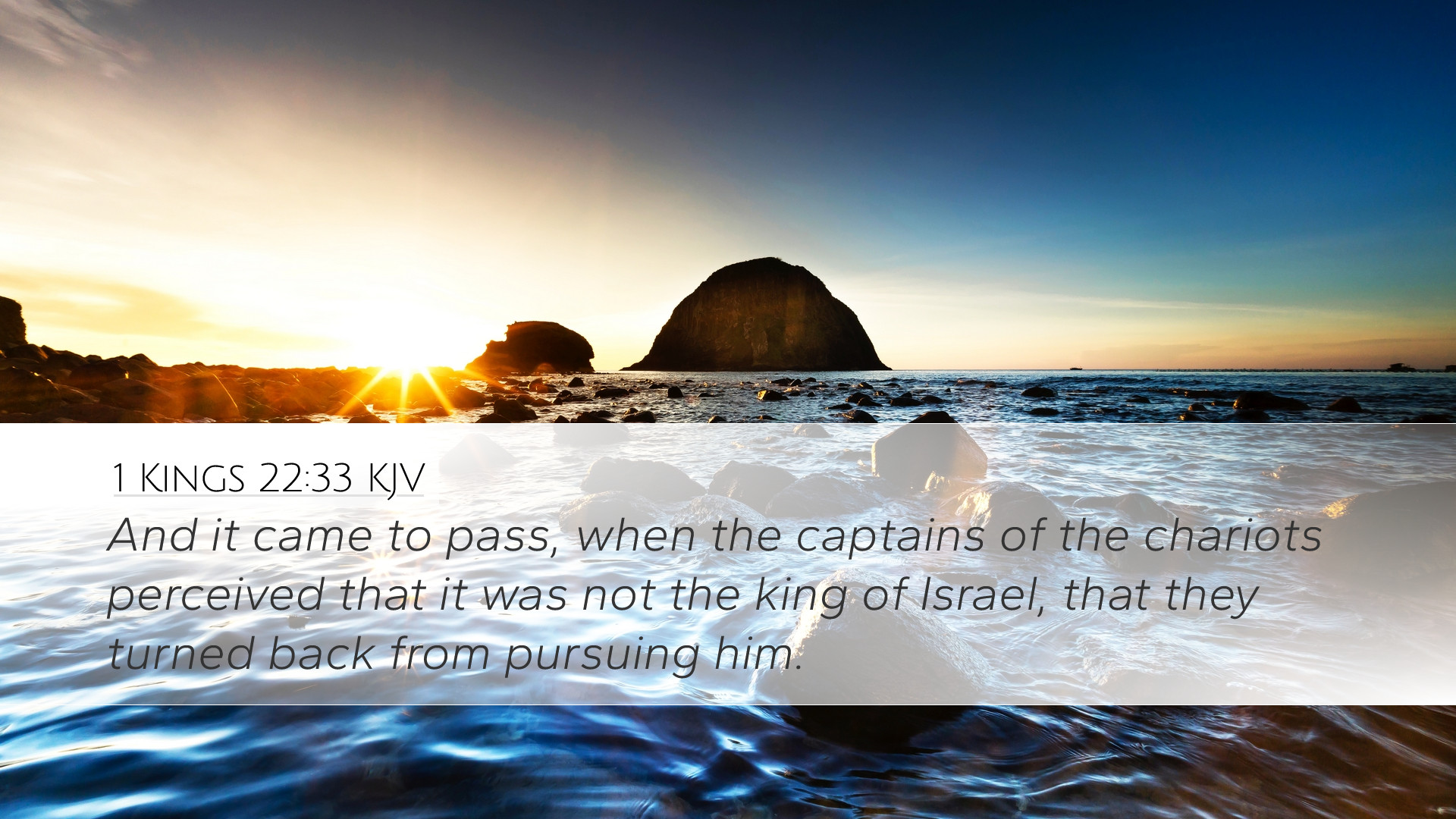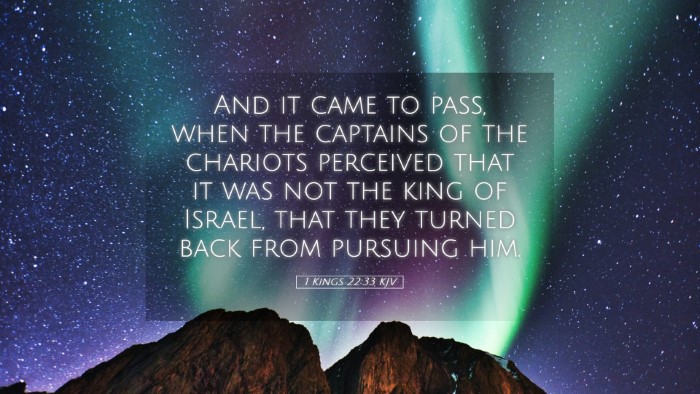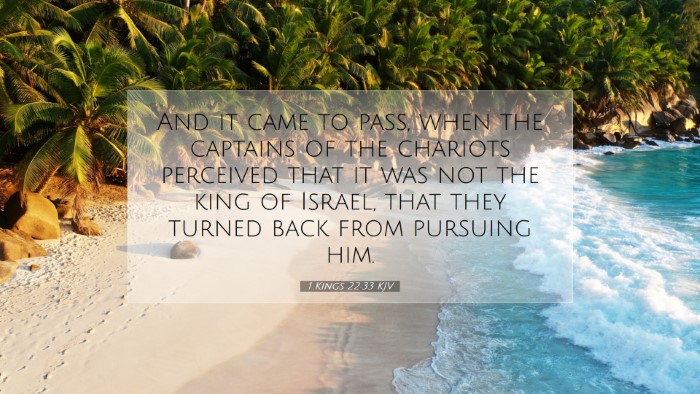Commentary on 1 Kings 22:33
Verse: 1 Kings 22:33 - "And as the king went to battle, he instructed his chariot commanders saying, 'Fight only with the king of Israel.'" (NASB)
Introduction
This verse provides a pivotal moment in the narrative of 1 Kings, marking a point of ultimately tragic choices made by King Ahab and his contemporaries. Various public domain commentaries offer insights that enhance our understanding of the historical and theological implications of this event.
Context and Background
Prior to this verse, significant events unfold including the alliance between Ahab, the king of Israel, and Jehoshaphat, the king of Judah. This alliance was deemed unwise, predominantly due to Ahab's sinful character and the influence he exerted over Jehoshaphat. The mention of battle tactics in 1 Kings 22:33 reveals Ahab's desperate and foolish mindset, which is consistently confronted by the prophetic voice of Micaiah.
Theological Themes
- Divine Sovereignty: The events leading up to this battle reveal God's sovereignty in the affairs of nations, where even the wicked are instruments of His purpose.
- The Dangers of Alliances: The text warns believers about the perils of ungodly alliances, illustrated by the alliance between Ahab and Jehoshaphat.
Commentary Insights
From Matthew Henry
Matthew Henry emphasizes the moral implications of Ahab's decisions, highlighting that he acts in direct disobedience to God. He notes that the prophetic warning from Micaiah is disregarded, illustrating the theme that ignoring divine counsel leads to downfall. Henry suggests that Ahab’s strategy to protect himself during battle reveals a lack of faith in divine protection, ultimately resulting in a greater tragedy.
From Albert Barnes
Albert Barnes provides an exposition on the political stratagem employed by Ahab. He highlights the specific instruction given to commanders, underscoring the contempt and vengeful motivation behind the targeting of the king of Israel alone. Barnes points out that this reveals Ahab’s underlying awareness of Micaiah’s prophecy and indicates a strategic, albeit futile, attempt at altering divine judgment.
From Adam Clarke
Adam Clarke offers a detailed analysis of the dynamics of the battle. He notes the significance of the command to focus efforts on Ahab, interpreting it as a direct fulfillment of God’s statement through the prophet Micaiah. Clarke elaborates on the implications of Ahab's disobedience and the fate that befalls those who rise against the purposes of God. Clarke also comments on the instability of human alliances when not founded upon righteousness.
Practical Applications
For pastors and theologians, this passage serves to remind us of the seriousness with which we should regard divine warnings. The lessons from Ahab’s folly can be applied to contemporary contexts where decisions are made based on personal desires rather than divine guidance.
- Moral Integrity: Leaders must be cautious in their associations, ensuring that alliances and decisions align with God’s will.
- Listening to Prophetic Voices: It is imperative for believers to be receptive to divine guidance and prophetic voices in their communities.
Conclusion
In summary, 1 Kings 22:33 encapsulates a crucial moment that showcases the conflict between human ambition and divine sovereignty. The commentary from historical theologians serves to deepen our understanding of the text, urging modern readers to learn from past mistakes, seek divine counsel, and stand firm in faith amidst worldly pressures.


